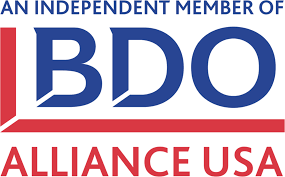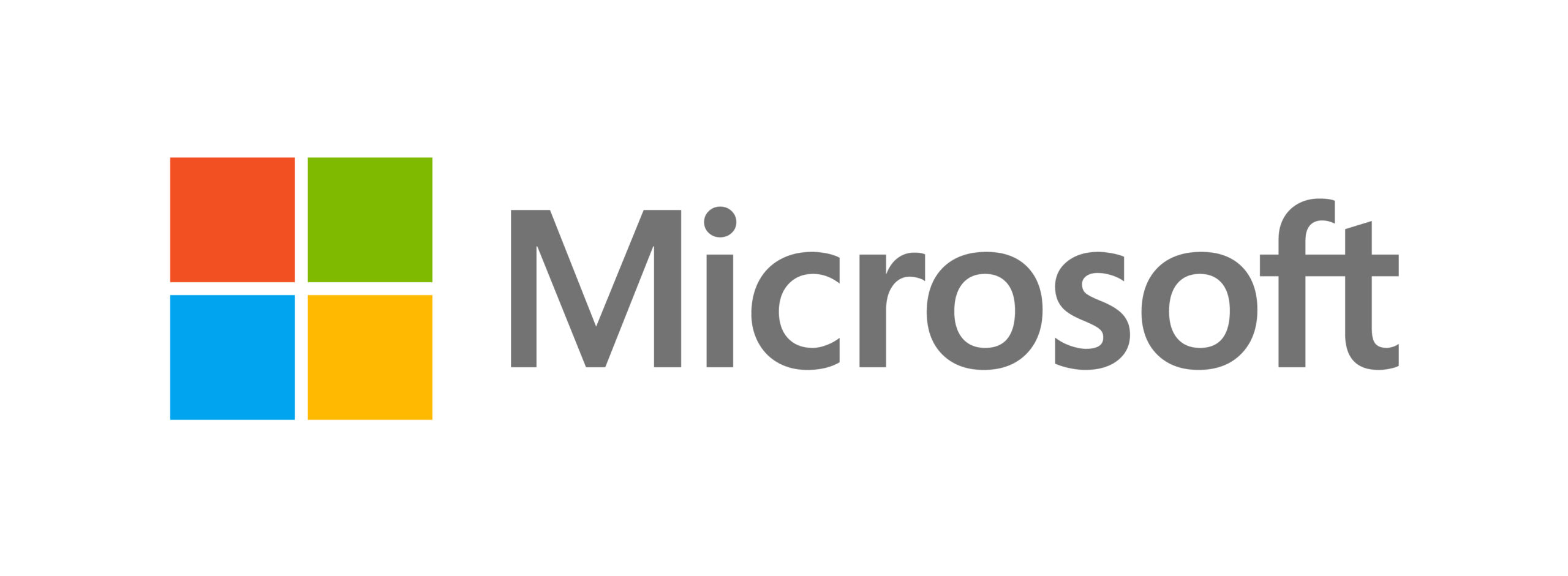Let us help you focus on what truly matters.
Optimizing and elevating medical practices from practice management consulting to medical billing and beyond.
Medical Billing & Practice Management Solutions
At Yeo & Yeo Medical Billing, we know how difficult it is to manage a medical office. We’re here to help make it easier. Whether it’s complex medical billing, practice assessment, compliance, accounting, and beyond, we’re here to complement your work, and help you run more efficiently and effectively.
What can you expect from our team? Besides more freedom, we’re here to timely submit accurate medical claims, leading to increased reimbursements and a higher profit.
Medical Billing
Complete coding, claim submission and collections designed to maximize revenues.
Practice Management
Holistic approach to optimized administrative support to keep your practice growing and compliant.
Practice Transitions
Sell, merge, transition your practice with professional guidance.
Practice Valuation
Professional medical practice appraisals to determine the value of your practice.
Audit & Assurance
Independent feedback that offers in-depth analysis of your financial statements, internal controls and operational efficiency.
Business Consulting
Comprehensive and proactive solutions beyond assurance and tax solving your most pressing operational challenges.
Outsourced Solutions
Customizable accounting, bookkeeping and payroll solutions.
Wealth Management
All encompassing, tax-efficient approach to financial planning.
Tax Planning
Tax strategies and solutions tailored to meet your individual and business goals and objectives.
Technology Solutions
Innovative and reliable IT solutions and management for Michigan Organizations.
HMS will begin auditing Medicare Plus Blue PPO’s reimbursed diagnosis-related group claims for clinical and coding validation, starting Sept. 1, 2019. HMS is an independent company working for Blue Cross Blue Shield of Michigan.
The audits will review medical records to ensure claims were billed in accordance with coding guidelines, and diagnoses were supported by documentation in the medical record.
Be ready to share medical charts for review. After an audit, HMS will send the findings and information on how you can ask for an appeal, if necessary.
The purpose of the clinical audit of the diagnosis-related group, or DRG, is to:
- Confirm compliance with national coding guidelines.
- Ensure documentation supports diagnoses and procedures reported.
- Detect, prevent and correct waste and abuse.
- Facilitate accurate claim payments.
HMS will be holding webinars for providers with information on the overall DRG clinical validation process and helpful tips. Schedules will be provided in a future web-DENIS message.
DRG clinical validation audits take a three-phase approach. See the scope of each phase and the data period for each phase in the chart below.
| Phase 1: Sept. 1 to Nov. 30, 2019 |
Providers receive audit finding letters, but no recoupment will come from Blue Cross. Audits are educational only. | Data period: Dates of service are Jan. 1 to April 30, 2019. |
| Phase 2: Dec. 1, 2019, to Feb. 28, 2020 |
Recoupment begins on claims with DRG findings. Providers won’t be charged for appeals on claims. | Data period: Dates of service are May 1 to Nov. 30, 2019. |
| Phase 3: March 1, 2020 |
DRG clinical validation audits are fully implemented. Providers will follow the existing audit and appeal process. Recoupment occurs. | Claims selected from claims not previously selected within the proper audit review period. |
Effective Sept. 1, 2019, through Aug. 31, 2020, value-based reimbursement for the Patient-Centered Medical Home designation will increase from 110% to 115%.
The temporary change recognizes that PCMH value-based reimbursement has remained at the same level for 10 years, but the expectations have become more rigorous over time and continue to evolve.
As part of the continued evolution of the program, we encourage PCMH practices to collaborate with their physician organizations to:
- Adopt more advanced PCMH capabilities
- Use care managers or care teams and the health information exchange to improve care coordination
Value-based reimbursement for PCMH designation will return to 110%, effective Sept. 1, 2020. The additional 5% value-based reimbursement will be reallocated from PCMH to the Provider-Delivered Care Management program for primary care physicians.
We’ll be communicating about these changes in future issues of The Record.
If you have any questions about these changes, contact your PGIP physician organization.
In 2011, the Centers for Medicare & Medicaid Services (CMS) terminated their use of consultation codes. They created a crosswalk system to transition providers away from using these eliminated codes. Office/outpatient Evaluation & Management (E/M) codes 99211-99205 replaced consult codes 99241-99245. Initial hospital care codes 99221-99205 replaced 99251-99255.
This shift resulted in lower reimbursement because the Relative Value Units (RVUs) for non-consult codes are significantly lower than those of the eliminated consult codes. Other payers still accepted the consult codes, causing confusion over inpatient consult codes being replaced with initial hospital care codes. The new AI (principal physician of record) modifier created confusion as well. The AI modifier was to be appended by admitting physicians so that specialists doing consultations could report initial hospital care codes on the same day. However, many didn’t use the modifier resulting in denials for duplicate services.
Training was provided to fix these issues, but physicians still had a decision to make. They had to decide if they would continue documenting the additional information required for consult codes that other E/M codes don’t need. This additional information includes: requesting provider, reason for consult, report of results, and recommended treatment. Some providers liked these details because they help to differentiate consult and transfer of care situations. Others preferred to omit these extra details because they viewed them as more work for less reimbursement in the end.
UnitedHealth announced in March of 2019 that they would be updating fee schedules to align more with Medicare. They will be eliminating the consult codes in congruence with the CMS. Cigna announced the same in July of 2019 that they would be implementing a new reimbursement policy. Their deadline is October 19, 2019, after which CPT consultation codes will not be valid. Though claims rejected for this reason may be resubmitted with the appropriate non-consultation E/M code. This update for both UnitedHealth and Cigna reflect their private plans. Any Medicare Advantage plans eliminated consult codes back in 2011. This is a big change for practices used to commercial insurances.
Two major commercial payers will stop reimbursing consultation E/M services (CPT codes 99241-99255) in October, finally joining CMS in ditching the high-paying but sometimes confusing code set.
UnitedHealth made its announcement in its March 2019 newsletter, stating that it was aligning its policy to match Medicare’s as part of an effort to shift participating providers to “more current fee schedules.” UnitedHealth will stop recognizing and paying for consults on Oct. 1, 2019.
Cigna’s announcement came more recently in a July bulletin but the company offered no specific explanation. “We will implement a new reimbursement policy, Evaluation and Management (R30), and deny claims billed with CPT consultation codes as not valid,” Cigna writes in the bulletin. “Claims can be resubmitted with the appropriate non-consultative E/M code that describes the service.” Cigna will stop recognizing and paying for consults a little later than UnitedHealth, on Oct. 19, 2019.
Read the full blog post from The DoctorsManagement Compliance Team.
In April 2018, Medicare began the process of removing Social Security Numbers from Medicare cards in an effort to prevent identity theft. Health Insurance Claim Numbers (HICNs) were replaced by Medicare Beneficiary Identifiers (MBIs), randomly generated combinations of 11 alphanumeric characters. The MBI is confidential and should be protected like any other Personally Identifiable Information.
These new Medicare cards were sent out between April 2018 and April 2019. During the 21 month transition period, providers have been able to continue filing claims using HICNs. This transition from HICN to MBI will be complete at the end of December 2019. Beginning in January 2020, Medicare claims must be submitted using MBIs no matter the date of service. HICNs will no longer be accepted after January 1, 2020 and claims submitted with the HICNs will be rejected.
There are a few exceptions to this rule:
- Appeals: HICNs or MBIs can be used for appeals or related paperwork.
- Claim status query: Either ID number can be used to check the status of a claim if the earliest DOS is before January 1, 2020. MBIs must be used for claims with DOS after January 1, 2020.
- Span-date claims: Either number can be used for 11X-Inpatient Hospital, 32X-Home Health and 41X-Religious Non-Medical Health Care Institution claims as long as the “From Date” is before December 31, 2019. If a patient’s services begin before December 31, 2019 and continue until after December 31, 2019, the claim can be submitted with either the HICN or MBI even if it is submitted after the deadline. Because home health claims are submitted for 60-day payment periods, providers can send them in with either the HICN or MBI. However, once the December 31, 2019 deadline is passed, the MBI must be used on the final claim that goes with these home health claims.
For more information, visit: https://www.cms.gov/Outreach-and-Education/Medicare-Learning-Network-MLN/MLNProducts/Downloads/MedicareCard-FactSheet-TextOnly-909365.pdf
CMS announced a new pilot program for practices called Data at the Point of Care (DPC). The DPC pilot is based on application programming interface (API) standards and is part of the CMS MyHealthEData initiative. The pilot will provide practices access to Medicare claims data directly within their workflow such as previous diagnoses, past procedures, and medication lists without needing to log into another application. Pilot participants will receive a beneficiary’s claims data including data from other treating providers. To participate in the pilot, practices must have an EHR that is API enabled, and CMS is especially interested in working with those who already receive claims data from other payers and have integrated the information into their existing workflow. Those interested in participating in the DPC pilot program can sign up here.
The Medicare Access and CHIP Reauthorization Act of 2015 (MACRA) required CMS to develop patient relationship codes to attribute patients and episodes of care to clinicians for purposes of cost measurement in MIPS. Beginning in 2018, clinicians began to voluntarily include patient relationship modifiers on claims to describe their treatment relationship with the patient (i.e., the reporting clinician provides continuous services to the patient and provides principal care; the reporting clinician performs episodic and focused services and provides time-limited care). To incentivize reporting of these codes, CMS proposes a new high-weighted MIPS improvement activity that would award credit to clinicians or group practices that report patient relationship modifiers starting in 2020. For more information, review CMS’ recently released resource on patient relationship code reporting.
MGMA has developed a member-exclusive comprehensive analysis of the 2020 Medicare physician fee schedule proposed rule, which includes changes to the Merit-based Incentive Payment System (MIPS) and Alternative Payment Model (APM) policies. This is your definitive resource for understanding how potential changes to Medicare quality reporting and payment policies in 2020 may impact your practice. The analysis includes a review of policy proposals that would:
- Establish a conversion factor (i.e., the amount paid per relative value unit under the fee schedule) of $36.089;
- Revise documentation, billing, and payment for Medicare E/M services starting in CY 2021;
- Increase payment for transitional care management services; and
- Set reporting criteria to earn a bonus and avoid a payment cut under MIPS.
Medicare is currently having issues with processing incoming and outgoing files. The delay is in reguards to 835, 277, and 277CA Medicare J8 Part A and Part B, J5 Part B and J5 National lines of business. The issue will cause a delay in payment.
View the announcement.
Beginning this month, Centers for Medicare and Medicaid Services (CMS) will conduct data validation and audits of a select number of Merit-based Incentive Payment System (MIPS) eligible clinicians for performance years 2017 and 2018. Practices targeted will receive a request for information from CMS’ contractor Guidehouse via certified mail or email. Those selected for audit will have 45 days from the date of the notice to provide the requested information.
If your practice is selected for an audit, you are encouraged to share your experience with MGMA. We will use this information to identify challenges practices face during the audit process and share concerns and recommendations directly with CMS. Visit the QPP Resource Library for information on the criteria for data validation for both performance years 2017 and 2018.
Article provided by the Medical Group Management Association.
An audit is a process of review for accuracy and efficiency based on regulations and procedures. Audits help identify billing and coding issues before
they escalate, which allows medical practices to rectify errors before they are subject to government repercussions and fees. An audit can be conducted
internally or externally and may be done pre-bill or post-bill.
Why are Audits Important?
Audits are conducted to ensure that coding is done according to regulations, claims are billed accurately and documentation supports the coding. They are also helpful tools to show areas where further training and improvement are necessary.
What is Typically Audited?
Certified Professional Coders (CPCs) can help your practice identify risk areas and make those the focus. They will consider past audits, weak areas, new procedures, new employees, etc. A narrow scope for the audit, which targets specific areas and periods, can help your practice find deficiencies and make plans for improvement.
How are Audits Conducted?
Once the auditors have identified what is to be reviewed, they will define the objectives of the audit and run a report under that scope. Typically, the process involves:
- Deciding how many accounts will be reviewed based on the whole population. The auditors will ensure that the sample size is an accurate representation of the whole and that the sample is randomly selected.
- Examining the documentation in the medical records for the samples. The auditors will compare the documentation to the codes billed to make sure they are accurate and record the results for each of the samples.
- Summarizing and presenting the audit findings. Based on their results, the auditors will create a plan of action for correction and improvement moving forward.
Yeo & Yeo Medical Billing & Consulting offers both on-site and remote auditing services. We have Certified Professional Coders on-site that are experienced in performing audits for a variety of practice sizes and specialties. If you have questions regarding our audit services or would like to schedule an audit, please contact us.
Refrence: Smith, Amy Lee. “Audit to Promote Revenue Integrity.” Healthcare Business Monthly, 1 Mar. 2019, pp. 44–47.
Medicare for All proposes to expand the current Medicare system to cover more than just those 65 or older. Universal healthcare structures are employed in many other countries, and the concept has been discussed in the United States several times over the years. Lawmakers presented their first proposal for Medicare for All at the end of April 2019.
Medicare for All legislation would convert the U.S. health system to a single-payer structure administered by the Department of Health and Human Services.
Expected Benefits
This healthcare structure would provide coverage and benefits for all citizens with no deductibles or copays. Instead, it would take the premiums from employment-based plans and move them to the government. It is thought that this would reduce the cost of administration over said plans as well as lower prescription costs.
What’s the Catch?
Any change of this magnitude would take a considerable amount of time and effort to transition. However, some lawmakers believe we need to change the system and change it soon so that patients don’t have the burden of medical bills. Republican lawmakers worry that a change like this will take away the people’s choices of insurance, employer coverage and may deteriorate or eliminate programs for seniors.
Potential Costs
While many Democrats address the need for universal healthcare, professionals also posed many questions about how much Medicare for All will cost the United States. Our current system costs more than healthcare systems in many other countries. The new system proposed by Medicare for All legislation may increase cost in some areas while reducing it in others.
It is estimated to cost around $33 to 39 trillion, 11-13% of the GPD, in the first ten years, according to researchers at George Mason University. In addition to this cost, other unknown economic factors stand in the way. With numbers like these, professionals believe that doubling income tax would not cover the funds for a change this big.
The current debate is weighing the pros and cons of each outcome and the possible effects. As of yet, there is no clear solution.
The Two-Midnight rule was established in October 2013. According to the fact sheet released by The Centers for Medicare and Medicaid Services, the rule states that inpatient procedures will be payable under Medicare Part A if the patient is expected to require a hospital stay that spans across two midnights.
For the rule to apply, the procedures must be medically necessary, and medical records need to support this if it is the case. However, payment for Part A is not appropriate if the stay lasts less than two midnights.
The goal of this rule is to cut back on medically unnecessary hospital admissions and the associated costs. Often, the cost of a procedure is higher for inpatient admissions than outpatient. Higher costs affect Medicare payment rates as well as patient costs.
The rule was revised to allow some flexibility for cases that qualify as exceptions, such as:
- If the case requires procedures on the inpatient-only list.
- The case is identified as a “rare and unusual exception” to the rule.
- When the doctor expects the patient to require a stay of at least two midnights, but the stay is cut short due to unforeseen circumstances such as death, transfer, improvement or release against medical advice.
A provider may decide that it is medically necessary for a patient to be admitted even though they are not expected to stay inpatient for two midnights. A patient should not be held in observation status for three or more days when admission is more appropriate for the patient’s care.
For more information on the updated Two-Midnight rule, see the CMS fact sheet.
The House of Representatives and the Senate have unveiled dueling legislation aimed at surprise billing, and the two are split on one key element: arbitration.
The House bill (PDF), which was introduced earlier this week by Reps. Frank Pallone, D-New Jersey and Greg Walden, R-Oregon, would require insurers to cover out-of-network emergency care at in-network rates and would ban balance billing.
Balance billing most often occurs in emergency departments or during elective surgery, when a patient goes to an in-network facility but is treated by an out-of-network clinician, typically an anesthesiologist or radiologist.
The Senate’s bill, however—which is backed by Sens. Bill Cassidy, R-Louisiana, and Maggie Hassan, D-New Hampshire—would include a “baseball-style” arbitration program to mitigate disputes, alongside similar elements to the House iteration.
In a statement, Cassidy, who is a physician himself, said the bipartisan working group has been developing the bill with input from providers, insurers and patient groups for more than a year. “Patients should be the reason for care, not an excuse for a bill,” he said.
The bills were introduced following a call to action from President Donald Trump, who last week gave a speech pushing Congress to address surprise billing. Senior White House officials told reporters that the administration has reservations about arbitration but was open to other solutions, such as using bundled payments.
Trump issued a series of guidelines for legislators to consider when developing bills, such as preventing an increase in healthcare expenditures and ensuring patients aren’t sent for out-of-network elective care without their knowledge.
Arbitration is used in New York, and a recent study found that consumer complaints about balance billing declined significantly in the state as a result. Providers in the state were more enthusiastic about the program than insurers, but case winners were evenly split between the two.
There are still improvements that could be made to New York’s arbitration approach, according to the study. For one, it doesn’t take steps to improve consumer insurance literacy and it also does not apply to self-insured plans, as those are exempted by the Employee Retirement Income Security Act regulations.
Surprise billing has been a hot-button topic in Washington, but work in the federal legislature has been slow-moving amid pushback from the provider and insurance lobbies. Sen. Lamar Alexander, R-Tennessee, who chairs the Senate Health, Education, Labor and Pensions Committee, told the president last week to expect action by July.
Article provided by Fierce Healthcare.
The Merit-based Incentive Payment System (MIPS) is a program that evaluates and rewards participating providers based on data reported in four performance categories: Quality, Promoting Interoperability, Cost, and Improvement Activities.
Starting in June 2019, Humana Medicare Advantage plans will use MIPS payment adjustment rates when reimbursing out-of-network clinicians that participate in MIPS for covered professional services. MIPS-eligible claims for services dates beginning January 1, 2019, that were processed before June 2019 will be reprocessed. The appropriate MIPS payment adjustment will then be retroactively applied to these claims.
For more information about MIPS and the Quality Payment Program, follow the link to our overview article, QPP Final Rule 2019 or visit https://qpp.cms.gov. For questions about Humana’s policy update, call Humana’s customer service at 1-800-457-4708.
MGMA joined more than 20 provider organizations in supporting newly introduced legislation that would remove regulatory barriers to value-based care delivery. The Medicare Care Coordination Improvement Act of 2019 (S. 966/H.R. 2282) would allow physician group practices additional flexibility to develop and test innovative payment and care delivery arrangements in value-based care models. The changes would track those currently implemented to accommodate ACOs. MGMA encourages members to urge their congressional representatives to co-sponsor this legislation via the “Contact Congress” portal above.
Article provided by MGMA Washington Connection
The Centers for Medicare & Medicaid Services (CMS) published a toolkit highlighting strategies that Medicare accountable care organizations (ACOs) can use to coordinate care for their patient populations. The toolkit outlines strategies that include both system-wide initiatives and targeted interventions that support individuals with chronic conditions or recent acute care needs. The toolkit also includes examples of facilitating data exchange between primary care providers and emergency departments, establishing networks of post-acute care partners to support their mission of improving the quality and effectiveness of care, and focusing on information technology to streamline referrals to community organizations.
Article provided by MGMA Washington Connection
CMS is launching a volunteer program for providers to test the process for reviewing compliance with HIPAA electronic transactions, unique identifiers, and operating rules among providers. Any providers who conduct electronic health care transactions can volunteer for the program on behalf of themselves or their group practice or hospital. CMS will select three healthcare providers from the pool of volunteers to work one-on-one with CMS to identify and resolve compliance issues. CMS estimates the testing will require a commitment of less than ten hours. Upon completion of the pilot program, participants will receive a certificate and will be exempt from compliance reviews for one year. Click here for more information on the program and how to contact CMS to volunteer. Contact CMS by April 24 to volunteer for the program.
Article provided by MGMA Washington Connection
















